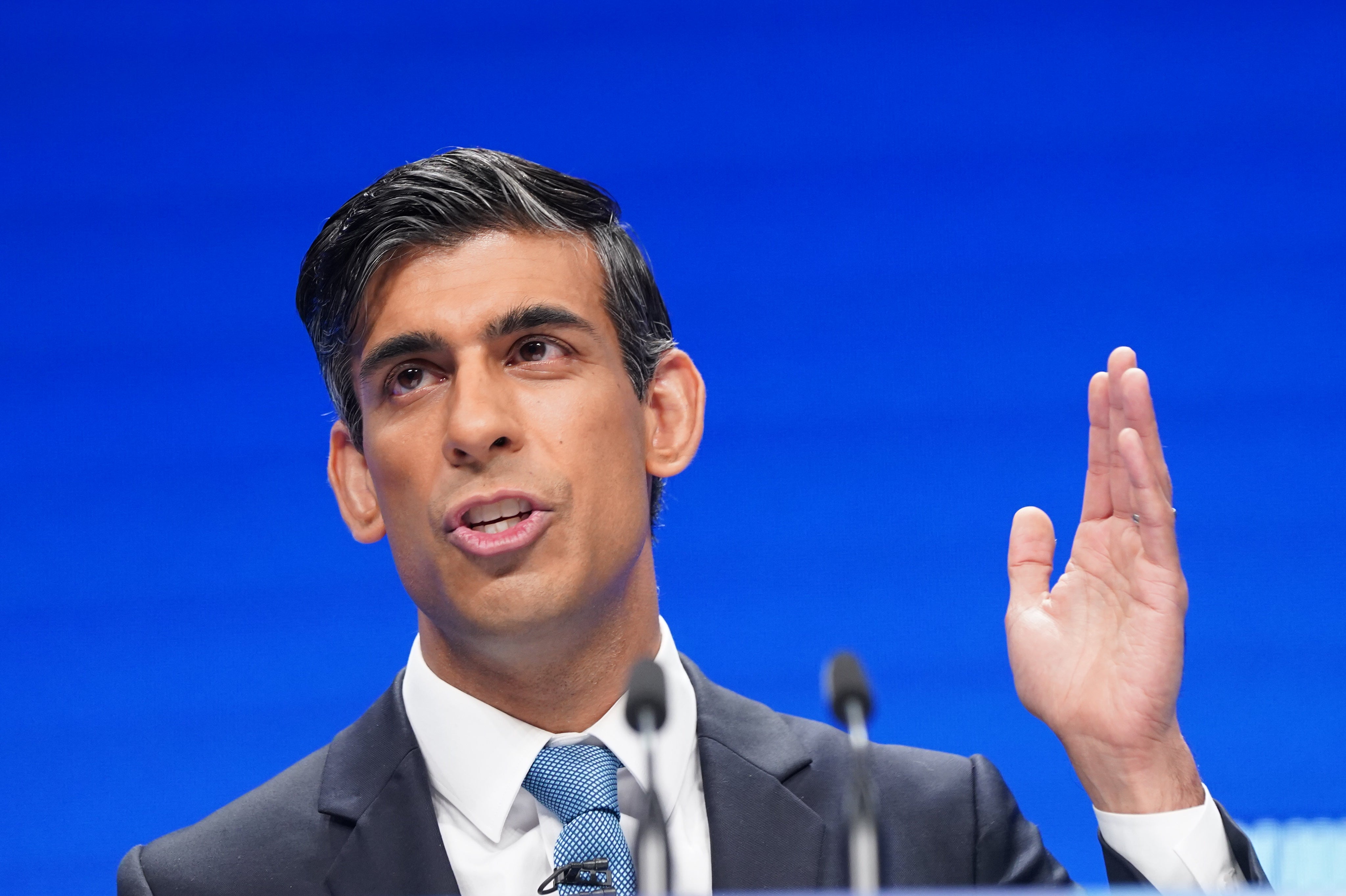Rishi Sunak needs to bring back furlough – businesses are crying out for help
Businesses are already feeling the impact of omicron and it’s only going to get worse. He may not like it but now is the chancellor’s time to shine, writes James Moore


So, Rishi Sunak, what’s your plan B? Because you and the Treasury sure as hell need one. Let’s not kid ourselves, we’re on the way towards another lockdown. Or perhaps a lockdown lite.
Omicron is spreading and even if its symptoms are less severe than Delta (possible but not proven) and vaccinations plus boosters are still effective at staving off severe illness and death (here’s hoping), a lot of people are still going to end up in hospital, and more measures to protect the NHS from being overwhelmed are going to be necessary.
That has to include economic support. There’s a case to be made that it should already be in place for the worst affected sectors.
Adam Barker, healthcare analyst at Shore Capital, pointed out that there was strong evidence of people taking their own precautions prior to the government imposing the lockdown restrictions that were so flagrantly ignored by staff at Downing Street and other government ministries last time around. This seems to have started again. Outside of Downing Street where people clearly don’t matter, Christmas parties have been cancelled en masse. Plans are being considered and changed. Travel bookings have started to slide, in part because of the testing regime that’s been reimposed. Masks? Regrettably. there has been less evidence of widespread take up of those little lifesavers. But the people who watch things like retail sales are starting to factor in things like a reduction in trips to the shops, and a corresponding increase in online shopping, into their forecasts.
It’s true that businesses learned a lot from previous lockdowns and periods when restrictions were in place. They will be able to apply that to mitigate the damage from the latest surge in infections.
Trouble is, those sectors that were just coming out of hibernation, and that have barely started to pick themselves up off the floor, are now being shoved back into the fridge, with a spell in the industrial freezer required by the Pfizer vaccine looming frighteningly large. This includes hospitality, travel, the arts, cinemas. “Non essential” shops have good cause for concern too. They haven’t built up much in the way of resilience. They haven’t had the chance. If this follows the path of the pandemic’s previous waves, things could deteriorate rapidly, and businesses are going to start going to the wall. The benign-looking labour market numbers will quickly turn.
The government’s management of the pandemic’s economic impact has, to date, proven to be a lot more skillful than its handling of the epidemiological situation, and especially the grotesque politics of partying while people died alone.
Britain has provided the world with the definitive text on how not to go about dealing with the microscopic devil known as Sars-CoV-2. But the nasty looking forecasts for unemployment following an economic shock of historic proportions? They never materialised. Of late, we’ve been talking about the problem of labour shortages again, not a shortage of employment.
That could change quite quickly in the absence of action. The Treasury will hate the idea of another furlough, let alone more bounceback loans and support for the self-employed. The last one forced the chancellor to borrow like he was on a losing streak in a Las Vegas casino. But here’s the thing: it was good borrowing. It helped cushion the economic impact of the earlier phases of the pandemic. It helped ease the social and human impacts too. Let’s not forget that.
It facilitated a faster recovery. The job retention scheme (the furlough’s official title) was, in fact, a wildly successful policy. It might be the only government policy to which that description could be applied.
Businesses, forced to close, had their workforces primed and ready to go when they were allowed to reopen so they could quickly start generating revenues, earnings and taxes. Their employees were able to keep wolves from the door while stuck at home. Sunak mightn’t like the idea of more of it. He’s a much more traditional Tory than Boris Johnson. He likes things like balanced books and tax cuts for middle-class voters. But he’ll just have to lump it. It’s going to be necessary. The hospitality industry is already howling. Others will follow suit. And do you blame them? They need help. Outside a few crazy ideologues, no one would begrudge the chancellor offering it. To the contrary.
So come on, Sunak, it’s your time to shine again. Your time to prove that you’re a cut above the festering moral void in the office next door.
The way things are going, he’s not going to be your boss for much longer anyway. Saving the economy from omicron would be a real feather in your cap if you fancy moving from the Treasury to first lord of the Treasury, which is a title a British PM traditionally enjoys.






Join our commenting forum
Join thought-provoking conversations, follow other Independent readers and see their replies
0Comments